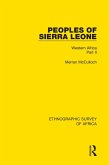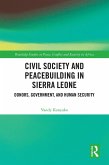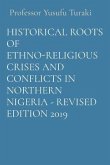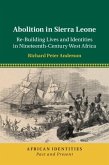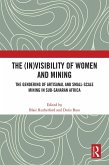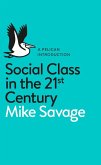In Culture and Conflicts in Sierra Leone Mining: Strangers, Aliens, Spirits, the author uses Sierra Leone as a case study to contribute to the debates on the causes and nature of mineral resource conflicts in Africa. Many works focus on the political economy of more sensitive large-scale mining conflicts. This book integrates cultural conflict dimensions, primarily the clash between the centuries-old customary landlord-stranger land governance institution and state mining policies and laws governing extraction.
Extractive industries as outsiders or strangers with no land rights threaten centuries-old cultural norms of indigenous landlords in mining regions. The Sierra Leone colonial government facilitated a stranger hierarchy through crafting legislation that redefined autochthony, citizenship, and micro-cultural identities concerning the stranger. Such actions further exacerbated power imbalances in race, ethnicity, gender, age, and social class. This legacy persists in postcolonial Sierra Leone threatening sustainable development mainly based on mineral extraction. The book shows that these cultural conflicts challenge the effective development of the mining sector, including establishing artisanal mining as a viable complementary livelihood to agriculture for rural populations.
Rather than focus on the well-documented large-scale "blood diamond" war from 1991 to 2001 as other studies have done, the book examines the less-investigated, persistent culture-related conflicts that are historically integral to mineral extraction. Such conflicts impact the efficient flow of mineral commodity chains. The book uses a world-system notion of commodity chains characterized by unequal economic exchange and unequal ecological exchange. And it highlights, specifically, an unequal cultural exchange that impacts cultural heritage, including customary livelihoods, indigenous land rights, and sacred places, and favors a Western cultural universalism. Itexamines mining policies and laws of the government of Sierra Leone in a historical context to assess their efficacy by highlighting colonial relics that continue to thwart development efforts. Her work underscores the need for effective participation by vulnerable and marginalized communities in decision-making processes on matters important to their economic, environmental, and sociocultural sustainability.
The interdisciplinary work highlights how culture, history, environment, and society intertwine in the Sierra Leone mining industry and the effects of global, transnational, and local dynamics and interactions.
Extractive industries as outsiders or strangers with no land rights threaten centuries-old cultural norms of indigenous landlords in mining regions. The Sierra Leone colonial government facilitated a stranger hierarchy through crafting legislation that redefined autochthony, citizenship, and micro-cultural identities concerning the stranger. Such actions further exacerbated power imbalances in race, ethnicity, gender, age, and social class. This legacy persists in postcolonial Sierra Leone threatening sustainable development mainly based on mineral extraction. The book shows that these cultural conflicts challenge the effective development of the mining sector, including establishing artisanal mining as a viable complementary livelihood to agriculture for rural populations.
Rather than focus on the well-documented large-scale "blood diamond" war from 1991 to 2001 as other studies have done, the book examines the less-investigated, persistent culture-related conflicts that are historically integral to mineral extraction. Such conflicts impact the efficient flow of mineral commodity chains. The book uses a world-system notion of commodity chains characterized by unequal economic exchange and unequal ecological exchange. And it highlights, specifically, an unequal cultural exchange that impacts cultural heritage, including customary livelihoods, indigenous land rights, and sacred places, and favors a Western cultural universalism. Itexamines mining policies and laws of the government of Sierra Leone in a historical context to assess their efficacy by highlighting colonial relics that continue to thwart development efforts. Her work underscores the need for effective participation by vulnerable and marginalized communities in decision-making processes on matters important to their economic, environmental, and sociocultural sustainability.
The interdisciplinary work highlights how culture, history, environment, and society intertwine in the Sierra Leone mining industry and the effects of global, transnational, and local dynamics and interactions.
Dieser Download kann aus rechtlichen Gründen nur mit Rechnungsadresse in A, D ausgeliefert werden.



